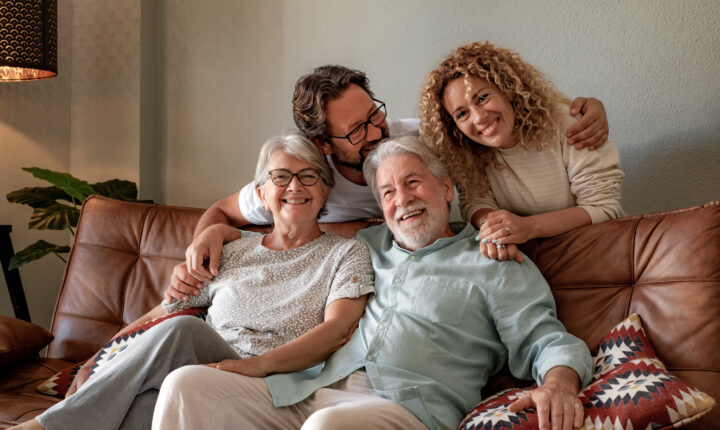Trust doesn’t just magically happen—it’s something we learn how to do, starting way back in childhood.
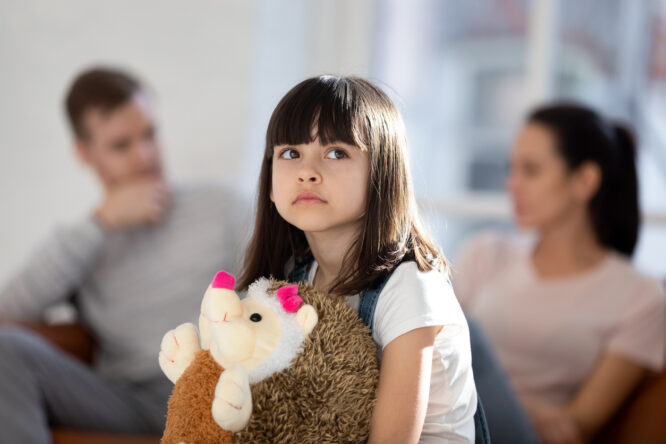
When those early lessons are shaky or painful, trusting other people as an adult can feel like trying to build a house on sand. How can you rely on someone not to hurt you and to have your best interest at heart when you’ve had so many experiences where that wasn’t the case? Here are some childhood experiences that often leave people quietly struggling with trust later in life.
1. They were let down by promises that were never kept.
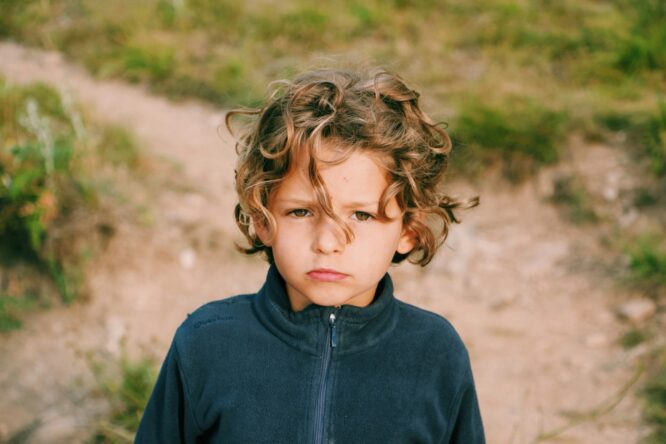
When adults regularly broke promises, even small ones, it taught them early on that words don’t mean much. They learned to expect disappointment, not follow-through, and that lesson sticks around a lot longer than anyone realises. The promises might have seemed small at the time, but over the years, they built up into a deep-seated belief that depending on other people only leads to hurt.
Even now, when someone makes a promise, they might brace for the letdown without even meaning to. It’s not about being negative; it’s about protecting themselves from hoping too hard and risking that familiar sting all over again.
2. They had to hide their true feelings to keep the peace.

If showing sadness, anger, or even excitement triggered punishment, ridicule, or withdrawal, they learned fast that honesty wasn’t safe. They became experts at bottling things up to avoid rocking the boat, believing that silence and suppression were safer choices.
Later on, that habit makes it hard to fully trust that anyone will accept them as they really are. Part of them still wonders if being open will cost them the connection they crave, making real vulnerability feel like a risk they aren’t sure is worth taking.
3. They were taught that love had to be earned, not given freely.

Growing up with conditional love—love you had to deserve by being good enough, smart enough, or useful enough—wires you to believe that affection always comes with strings attached. Nothing ever felt guaranteed, no matter how hard they tried to meet the shifting expectations.
Even in healthy relationships, they might keep scanning for the hidden price tag. Trusting someone’s love feels risky because deep down, they are waiting for the moment they have to earn it all over again, afraid that if they slip up even once, it will all disappear.
4. They were put in charge of adult problems too young.
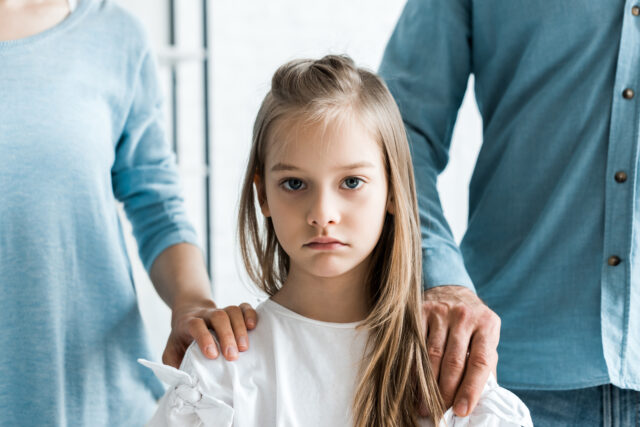
Kids who had to mediate arguments, manage money, or emotionally support adults were forced to grow up before they were ready. Instead of being cared for, they were pushed into caretaker roles, blurring the line between childhood and adulthood in painful ways.
Now, trusting other people to be reliable feels foreign. They learned that if they didn’t handle everything themselves, things would fall apart, and that belief doesn’t disappear just because they grew up. Independence feels safer than leaning on anyone else, even when it feels lonely.
5. They were constantly criticised, even when they tried their best.

When every effort was met with nitpicking, harsh words, or impossible standards, they stopped trusting that vulnerability would be met with kindness. Instead, they braced for judgement, no matter how much effort or heart they put in. Later, this shows up as a deep fear of being truly seen. They expect criticism where most people would expect support, and that makes real trust feel like a gamble they’re often too scared to take.
6. They were gaslit about their own experiences.
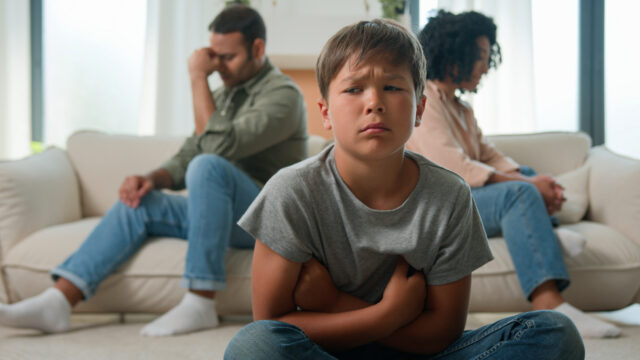
If their reality was constantly questioned—being told, “That didn’t happen,” or “You’re overreacting”—it ate away at their ability to trust their own judgement, let alone other people. Gaslighting planted seeds of self-doubt that took root deep inside.
Today, even small doubts can spiral into massive self-questioning. Trusting someone else’s intentions feels especially risky when they are still learning how to trust their own instincts after years of being taught not to believe themselves.
7. They saw important people disappear without explanation.
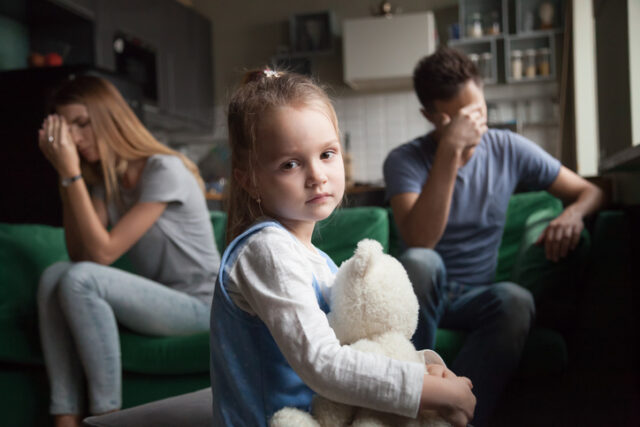
Whether through divorce, abandonment, or death, sudden loss in childhood teaches a brutal lesson: people can leave without warning. No matter how much you love them, it might not be enough to make them stay, and there is often no explanation that makes it feel okay.
That fear of sudden disconnection often lingers into adulthood. They might pull back just when things start to feel good, trying to soften the blow of a loss they still half-expect to come. Even stability can feel suspicious because they learned not to trust good things lasting.
8. They grew up in a home full of secrets and half-truths.

When families avoid hard conversations, deny obvious problems, or pretend everything is fine when it’s clearly not, kids learn that honesty is dangerous, or at least, unwelcome. Secrets become the norm, not the exception.
As adults, they might struggle to believe people who say, “You can tell me anything.” A lifetime of secrecy taught them that telling the truth can backfire in ways that are hard to forget, and that people rarely mean it when they say they want honesty.
9. They were shamed for needing comfort or support.
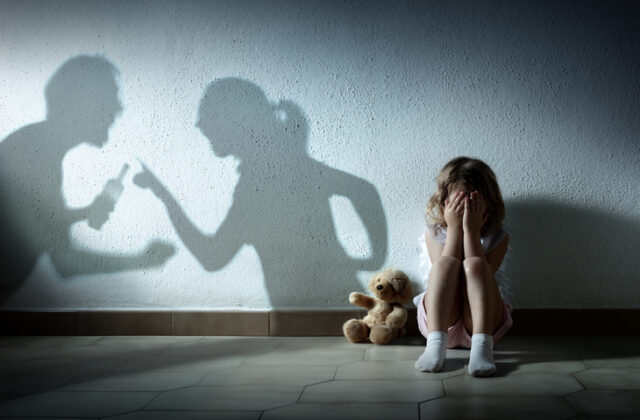
Being told things like “Stop crying” or “You’re too sensitive” sends a loud message: needing comfort is weak and embarrassing. Over time, reaching out for help starts to feel dangerous or humiliating instead of safe.
Later in life, this makes it hard to trust that people won’t judge or abandon them if they show vulnerability. Independence becomes a shield they carry everywhere, even though part of them longs for real, unconditional support.
10. They lived with unpredictable moods or behaviour.

Growing up with adults whose moods swung wildly, whether from mental health struggles, substance use, or emotional immaturity, taught them that stability couldn’t be trusted. Love might be warm one minute and cold the next, without warning.
That early chaos left a deep mark. Even now, they might find it hard to believe that someone’s kindness or consistency will actually last, no matter how genuine it seems. Trusting stability feels foreign because it was never part of their foundation.
11. They learned early that honesty could be used against them.

Maybe they shared a secret and got mocked for it. Maybe they admitted a mistake and were punished instead of supported. Either way, they learned that opening up wasn’t safe; it became something that could be turned against them later.
Now, keeping their cards close to their chest feels safer than letting someone else hold their vulnerable parts. Trust doesn’t come easily when the past taught them that honesty could be weaponised in ways that hurt deeply.
12. They were constantly compared to other people.

Hearing “Why can’t you be more like your sibling?” or “Other kids don’t act like that” leaves lasting bruises. It taught them early that love and acceptance were conditional on being better, quieter, smarter, or easier than they naturally were.
Today, that comparison game still plays in the background, making it hard to believe that someone could love them for who they are, flaws and all. Trusting someone’s unconditional acceptance feels foreign when they’ve been measured and judged their whole lives.
13. They rarely felt emotionally safe growing up.

Safety isn’t just about physical protection; it’s about knowing your feelings are allowed, and your needs will be met with care. When that’s missing, emotional self-protection becomes a survival skill rather than a choice.
Opening up now feels like putting their heart in someone else’s hands without any guarantee it will be handled carefully. It’s not distrust for no reason; it’s a deeply learned survival mechanism that takes real work to slowly unlearn.
14. They watched adults betray each other.

Seeing constant cheating, lying, manipulation, or betrayal among the adults around them teaches kids that loyalty is fragile and people can’t always be trusted to act with integrity, even when they claim to love each other.
Now, when things are good, part of them might be scanning the horizon for the betrayal they assume is coming. It’s exhausting, but it’s rooted in very real early lessons about how quickly trust can be broken by the people you care about most.
15. They were expected to handle way more than they should have.

Whether it was being the emotional support for a parent, caring for siblings, or just managing feelings way too big for their age, they learned early that depending on anyone else wasn’t an option. If they didn’t step up, no one else would.
That deep, lonely independence makes trusting other people feel unnatural. It’s not that they don’t want connection; it’s that they are used to carrying everything alone because, once upon a time, they had no other choice, and asking for help felt more dangerous than doing it all themselves.

